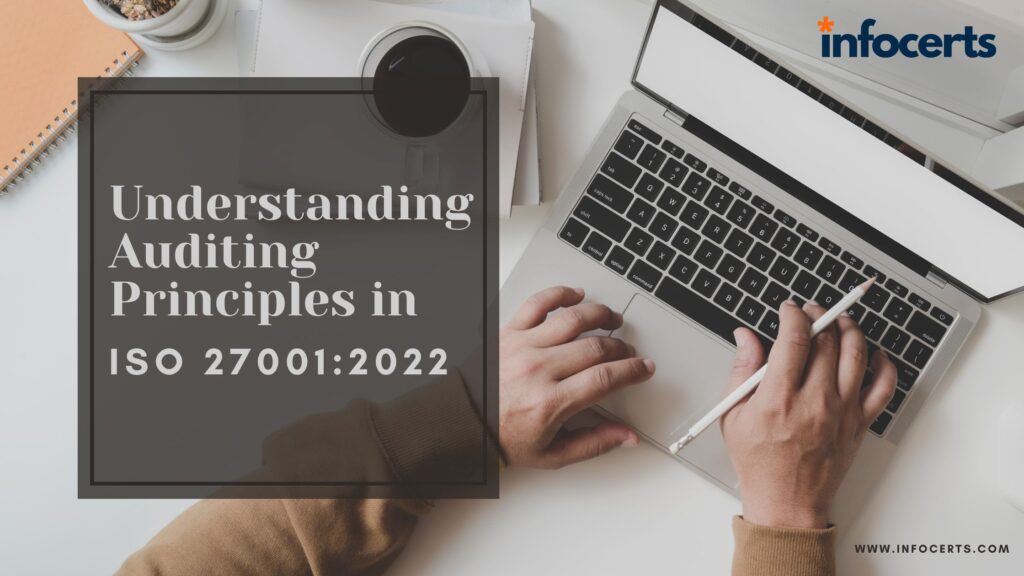Introduction
ISO 27001:2022 is a globally recognized standard for information security management systems (ISMS). Central to this standard are the principles of auditing, which ensure that audits are conducted effectively, ethically, and reliably. This blog will delve into the key auditing principles outlined in ISO 27001:2022: Integrity, Fair Presentation, Due Professional Care, Confidentiality, Independence, and Evidence-based Approach.
Auditing Principles in ISO 27001:2022
Integrity
Integrity is the bedrock of professionalism in auditing. Auditors must conduct themselves with honesty and responsibility. This principle ensures that auditors remain ethical and trustworthy, fostering confidence in the audit process.
Fair Presentation
The principle of Fair Presentation mandates auditors to report findings truthfully and accurately. Auditors must provide a balanced view without distortion, bias, or omission, ensuring stakeholders receive a clear and accurate picture of the audit outcomes.
Due Professional Care
Due Professional Care requires auditors to exercise diligence and professional judgment during audits. This principle underscores the need for auditors to maintain a high level of competency and to continually update their skills and knowledge.
Key Components of Due Professional Care
| Aspect | Description |
|---|---|
| Diligence | Careful and persistent work or effort. |
| Professional Judgment | Informed decision-making based on expertise. |
| Competency | Necessary skills and knowledge for auditing. |
Confidentiality
Confidentiality is crucial in maintaining the security of information. Auditors must ensure that sensitive information accessed during an audit is protected and not disclosed inappropriately. This principle helps in building trust and safeguarding the interests of the organization being audited.
Independence
Independence is essential for auditors to act impartially. Auditors must be free from any conflicts of interest or undue influence that could affect their objectivity. This principle guarantees that audit results are unbiased and credible.
Maintaining Independence
- Avoiding conflicts of interest.
- Ensuring auditors do not have personal stakes in the audit outcome.
- Keeping a clear separation between audit and management roles.
Evidence-based Approach
An Evidence-based Approach is vital for verifiable audit results. Auditors must gather and analyze audit evidence that is reliable and objective. This principle ensures that conclusions drawn during an audit are based on solid proof and not assumptions or opinions.
Types of Audit Evidence
| Type | Examples |
|---|---|
| Documentary | Policies, procedures, records. |
| Observational | Direct observations of activities. |
| Testimonial | Interviews with personnel. |
| Analytical | Analysis of processes and systems. |
Conclusion
The principles of auditing in ISO 27001:2022 provide a framework for conducting thorough and ethical audits. Adherence to these principles ensures that audits are reliable, fair, and effective. For IT professionals looking to deepen their understanding of these principles and enhance their skills, our company offers comprehensive courses on ISO 27001:2022. Contact us at INFOCERTS at +91 70455 40400 to enroll today.
For more details on ISO 27001:2022, check our ISO 27001:2022 course.

